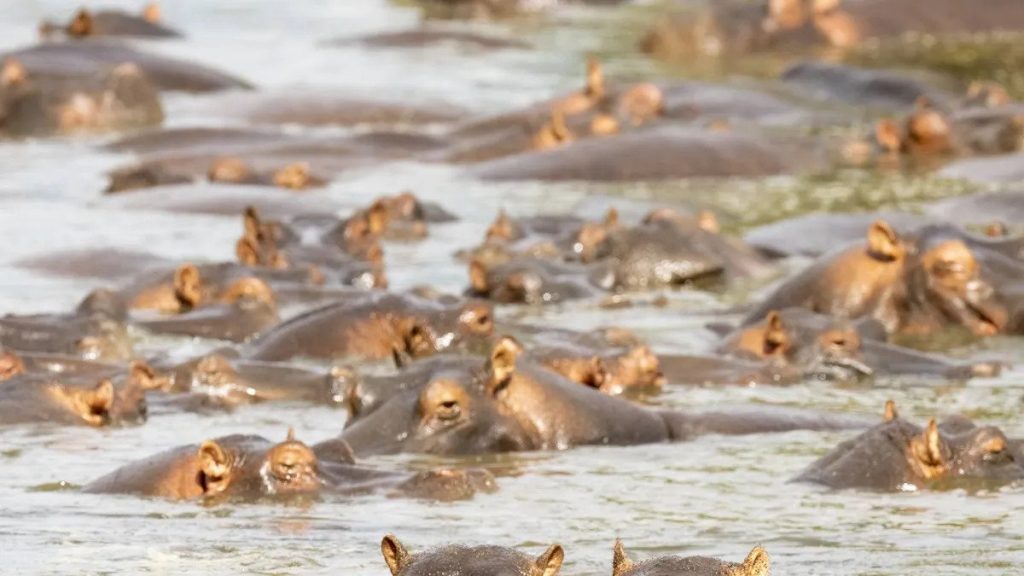The drug lord Pablo Escobar won worldwide notoriety for the cocaine he smuggled out of Colombia.
Less familiar is what he smuggled in. In the late 1970s, the billionaire Medellín Cartel kingpin acquired four hippopotamuses, reportedly from Africa or the United States, to go with the elephants, giraffes, and antelopes at the private zoo on his estate in western Colombia.
When Escobar surrendered to authorities in 1991, the government seized his Hacienda Nápoles estate, located about 125 miles from Bogota along the Magdalena River — and allowed the animals to roam free. Now, they have become a problem for the small nation as they keep multiplying and have no natural predators.

In the 30 years since, the original hippos — three females and a male — have multiplied to more than 130 and can reach up to 400 within the next decade. Hippos aren’t native to South America. Without natural predators, the aggressive, territorial animals have settled into the Magdalena River in central Colombia.
Now the insatiable herbivores are devouring plant life, crowding out native animals, polluting soil and water, and threatening people. Hippos are among the world’s most dangerous animals, capable of killing a human with a single bite.
Hippos are territorial, weigh up to three tons, and are one of the most aggressive animals on Earth, according to National Geographic. They can snap a canoe in half with their powerful jaws, and they kill about 500 people in Africa each year.

Herbivore mammals do not have a natural predator and scientists say they are a potential problem for biodiversity since their feces change the composition of the rivers. They also say and could impact the habitat of animals there like manatees.
In 2021, they were declared a toxic invasive species by Colombia’s government.
That’s why the plan to send them abroad is so important. The hippos would be lured into crates and sent to India and Mexico, where there are sanctuaries and zoos capable of taking in and caring for the animals.
“It is possible to do, we already have experience relocating hippos in zoos nationwide,” said David Echeverri López, a spokesman for Cornare, the local environmental authority that would be in charge of the plan to relocate the animals safely, told CBS News.


